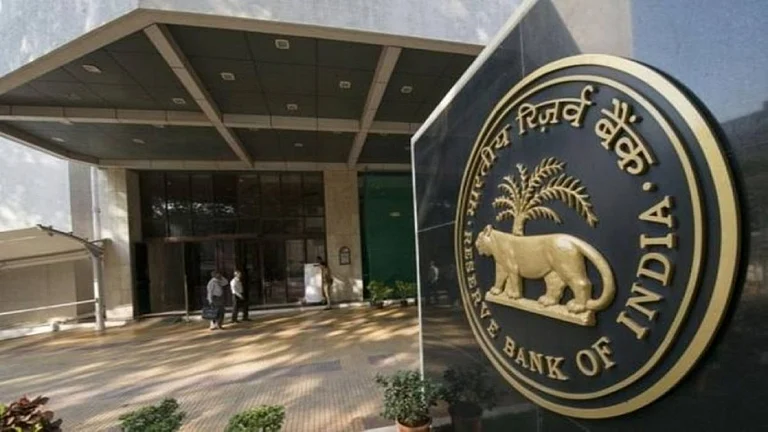The Monetary Policy Committee (MPC), led by Reserve Bank of India (RBI) Governor Shaktikanta Das, commenced its three-day session on Tuesday to determine the upcoming bi-monthly policy. The decision of the six-member MPC will be finalized and announced on Thursday, August 10, 2023.
It is widely expected by experts that the policy will maintain the status quo, with no changes to the repo rate or the RBI's stance. The central bank may choose to continue the current pause on the repo rate, as the borrowing cost has remained at 6.5 per cent since its upward adjustment from 6.25 per cent in February, resulting in a stable benchmark rate in the April and June policy reviews.
Market participants and businesses will closely observe the governor's overall tone, anticipating a hawkish 'pause' approach.
What is the reverse repo rate?
The reverse repo rate refers to the rate at which the Reserve Bank of India borrows money from commercial banks within the country. It is a monetary policy instrument used to regulate the money supply in the country.
What factors will lead to the RBI's hawkish stance?
The soaring prices of tomatoes have impacted the overall vegetable basket in the Consumer Price Index (CPI), potentially pushing the consumer inflation rate above 6 per cent for July and even August. Vegetable inflation stood at 12 per cent in June, leading to inflationary pressures on pulses and eggs at 10.53 per cent and 7 per cent respectively. Higher vegetable prices are also affecting items like milk, which has experienced inflation rates between 8-10 per cent since January. It is expected that food inflation in July will rise to 9 per cent from 4.54 per cent in June.
How will weather conditions affect food inflation?
Despite a surprisingly good spell of rain in July, El Nino has set in. The government's decision to ban non-basmati rice exports comes from concerns that only short-maturity rice varieties may be sown in rain-deficient southern states and over-flooded Punjab fields, significantly impacting rice yields. El Nino is expected to cause deficient rainfall from August onwards, which will adversely affect the winter-sown Rabi crop, particularly wheat. Incessant and uneven rainfall in certain regions may have a negative impact on the supply chain. Consequently, food inflation is expected to persist even when the tomato crop is harvested in early winter.
Other factors influencing the RBI's decision
The RBI's decision to lower interest rates depends primarily on the inflation rate and the interest rates set by the US Federal Reserve (Fed). Only if growth falls below 5.5 per cent and the Fed lowers its interest rates can we expect the RBI to reduce the repo rate. Additionally, liquidity has improved since the withdrawal of Rs 2000 notes, which may lead the RBI to maintain its current stance on accommodation withdrawal. The RBI's approach will remain cautious, taking further cues from the increase in Fed rates.
Expert opinions on the RBI's stance:
Palka Arora Chopra, Director at Master Capital Services, stated, "RBI is likely to maintain interest rates at the current level for the third consecutive time, given the recent decline in the inflation rate, which has fallen below 5%."
The rise in inflation, particularly in vegetable prices in July, reinforces experts' belief that the RBI will maintain a cautious and hawkish stance in the upcoming monetary policy meeting.
Mahesh Agarwal, National -Head Wealth at AUM Capital said, “We expect RBI to keep the policy rates and stance unchanged in the forthcoming policy. In June, the Consumer Price Index (CPI) showed an inflation rate of 4.81%. Similarly, core inflation in June was lower at 5.1% than 5.2% in May. As a result, CPI will likely accelerate in the next few months because of the erratic effects in monsoon has affected the farmers.”
He added, “El Nino-related weather uncertainties exist, elevating the possibility of a delayed start to the policy easing cycle. Subsequently, the surprise surge in retail inflation for June has pushed the rate cut possibilities to the next financial year.”
Meanwhile, MPC will definitely keep an eye on boosting consumer sentiment and capex momentum. Aditya Damani, Founder & CEO of Credit Fair, said, “The RBI is expected to carry on with the current stance of 'withdrawal of accommodation, as CPI inflation has risen to the higher than expected level. The repo rate is likely to remain unchanged. With the US Fed rate hike, possibility of rate cut remains distant.”
Dr. V K Vijayakumar, Chief Investment Strategist at Geojit Financial Services said, “There is strong growth momentum in the economy now and the MPC is unlikely to do anything that upsets the growth apple cart. So, the rates and stance are likely to remain unchanged.”































